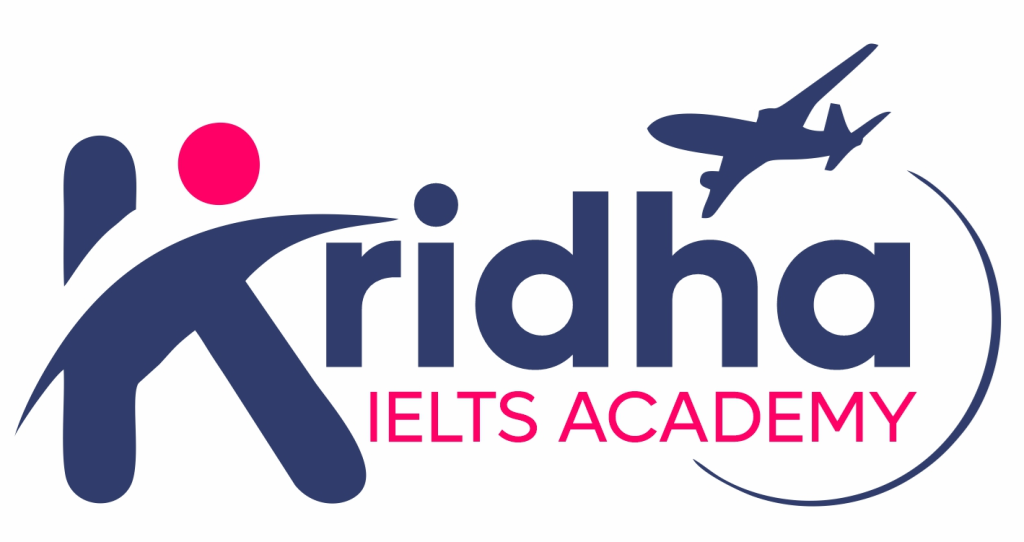10 Best Universities in Germany for Masters

Located in the heart of Europe, Germany is known for its rich history, cultural heritage, and economic prowess. The nation’s history is deeply woven into the fabric of Europe, from the medieval period with its castles and cathedrals to its pivotal roles in World Wars and the subsequent reunification of East and West Germany in 1990.
Beyond its economic and cultural achievements, Germany is a preferred destination for international students. Known for its world-class universities and diverse cultural experiences, Germany offers a unique and enriching academic environment.
Pursuing a master’s degree in Germany is an attractive prospect for international students seeking high-quality education and global opportunities. Whether your interest lies in engineering, technology, natural sciences, humanities, social sciences, or business, Germany offers top-tier programs to suit your aspirations.
If you are considering pursuing a master’s internationally, here are the 10 best universities in Germany for a master’s.
Also read:
10 Best Universities in Germany for Masters
Jotted down below is the list of the 10 best universities in Germany for master’s:
1. Ludwig-Maximilians-University (LMU) Munich
Campus | Munich |
Number of Students | 50,000+ |
Type | Public |
Degrees Offered | Masters, Double-degree, International Doctoral |
Ludwig-Maximilians-University (LMU) Munich, founded in 1472, is one of Germany’s oldest and most esteemed institutions. It is in Munich’s heart and consistently ranks among the world’s top universities in QS and Times Higher Education rankings.
LMU boasts a competitive admission process, with acceptance rates varying by program. An attractive feature is its affordability, with relatively low fees compared to peers. Students typically pay a nominal semester fee covering administrative costs and public transportation.
International tuition fees may vary by program and level. Admission prerequisites differ; undergraduates need a high school diploma, while graduate applicants require a relevant bachelor’s degree.
German and English proficiency is often mandatory, depending on the program’s language.
2 . Technical University of Munich
Campus | Munich, Garching, Freising, Straubing, Heilbronn |
Number of Students | 20,000+ |
Type | Public |
Degrees Offered | Bachelor’s, Master’s, Doctoral, International Degrees, Continuing Education |
The Technical University of Munich (TUM) is a premier European research university celebrated for its advancements in science, engineering, and technology. Founded in 1868, TUM has cultivated a reputation for academic excellence and innovation.
Consistently ranked among the world’s top universities, the QS World University Rankings 2024 has put it among the top 50 universities globally. Renowned for its engineering, technology, computer science, and natural sciences expertise, TUM offers various undergraduate and graduate programs across multiple disciplines.
As a public institution, TUM provides high-quality education and research opportunities at relatively low tuition fees compared to private universities. While admission is competitive, reflecting its esteemed status, TUM remains accessible to students seeking advanced knowledge and research opportunities in a dynamic academic environment.

3. Heidelberg University
Campus | Altstadt, Neuenheimer Feld, Bergheim, Im Neuenheimer Feld |
Number of Students | 30,000+ |
Type | Public |
Degrees Offered | Bachelor’s, Master’s, Doctoral, International Degrees |
Heidelberg University, or Ruprecht-Karls-Universität Heidelberg, is one of Germany’s oldest and most esteemed public research institutions, dating back to 1386. Situated in the charming city of Heidelberg in Baden-Württemberg, the university enjoys a global reputation for academic excellence and research achievements.
With consistent top-tier rankings, Heidelberg University offers master’s programs across various fields, including natural sciences, humanities, social sciences, engineering, and medicine. As a publicly funded university, Heidelberg charges nominal administrative fees, covering essential services like student union contributions and public transportation.
International applicants must meet specific admission criteria, including academic qualifications equivalent to German standards and language proficiency in German or English. Heidelberg University provides students with ample opportunities for advanced study and specialization, making it a sought-after destination for higher education.
4. University of Bonn
Campus | North Rhine-Westphalia |
Number of Students | 38,000+ |
Type | Public |
Degrees Offered | Bachelor’s, Master’s, Doctoral, International Degrees |
The University of Bonn, situated in Bonn, Germany, is a prestigious public research institution renowned for its global standing in teaching and research. With consistent top rankings nationally and internationally, you can find myriad undergraduate and graduate programs across multiple fields at this university.
Funding from the state of North Rhine-Westphalia supports its operations as a public university. Admissions to programs at the University of Bonn are competitive, reflecting its high academic standards. Master’s programs, including those taught in English to cater to international students, offer diverse options for advanced study.
The university’s online application portal facilitates the application process, providing details on requirements, deadlines, and procedures. For international students seeking master’s programs in English, the University of Bonn presents numerous opportunities for advanced study in a globally recognized academic environment.
5. RWTH Aachen University
Campus | Aachen |
Number of Students | 45,000+ |
Type | Public |
Degrees Offered | Bachelor’s, Master’s, Integrated Bachelor’s-Master’s Programs, Doctoral Degrees (PhD), Postgraduate Certificates and Diplomas, Executive Education and Continuing Education |
RWTH Aachen University, situated in Aachen, Germany, is one of Europe’s premier technical institutions, celebrated for its excellence in engineering, natural sciences, and interdisciplinary research. Renowned globally, it consistently secures top positions in global university rankings, particularly in engineering and technology, owing to its distinguished academic reputation, prolific research output, and robust industry collaborations.
As a public university funded by the state of North Rhine-Westphalia, RWTH Aachen is dedicated to delivering high-quality education and research opportunities to a diverse student body. Admission can be competitive, varying by program and level of study, with popular programs often facing heightened demand and limited capacity.
While tuition fees at RWTH Aachen are generally low to moderate for a public university in Germany, additional charges may apply for specific programs or services. International students from non-EU/EEA countries may also incur administrative fees as per university regulations.
6. University of Freiburg
Campus | Freiburg im Breisgau |
Number of Students | 25,000+ |
Type | Public |
Degrees Offered | Bachelor’s, Master’s, Doctoral Degrees (PhD), Interdisciplinary and Specialized Programs, International Programs |
The University of Freiburg, also known as the Albert Ludwig University of Freiburg, is one of Germany’s oldest and most esteemed institutions, tracing its roots back to 1457. It is located in Freiburg im Breisgau and enjoys a distinguished reputation for research and teaching excellence across diverse disciplines.
Ranked among the top global universities, it excels in Natural Sciences, Medicine, and Humanities programs. While acceptance rates vary by program, the university maintains a moderate acceptance rate, ensuring accessibility while upholding standards.
For EU/EEA students, most undergraduate and graduate programs are tuition-free, with only nominal administrative fees. The university boasts a diverse and international student body, offering extensive support services, including orientation programs and language courses.
While German is the primary language, some Bachelor programs are available in English, notably in fields like Liberal Arts and Sciences. Prospective students should verify specific program requirements regarding language proficiency.
7. University of Tübingen
Campus | Tübingen |
Number of Students | 28,000+ |
Type | Public |
Degrees Offered | Bachelor’s, Master’s, Doctoral Degrees (PhD), Professional Degrees and Continuing Education, International Programs, Bachelor Programs in English |
The University of Tübingen, nestled in the charming town of Tübingen, Germany, is esteemed for its academic prowess and diverse international community. It is renowned globally and consistently earns top rankings for impactful research and educational excellence.
Offering accessible tuition fees for both local and international students, the university provides scholarships and financial aid to alleviate financial burdens. With a competitive yet fair admissions process, the University of Tübingen maintains moderate acceptance rates, valuing academic merit and potential.
Across a spectrum of disciplines, including humanities, natural sciences, social sciences, and engineering, the university offers undergraduate, graduate, and doctoral programs catering to diverse academic interests and career aspirations.
Set amidst the scenic beauty of Baden-Württemberg, the university boasts a culturally rich environment enhanced by historic architecture, verdant landscapes, and the serenity of the Neckar River. Its proximity to vibrant cities like Stuttgart enriches student life with urban amenities and cultural offerings.
8. University of Göttingen
Campus | Göttingen |
Number of Students | 30,000+ |
Type | Public |
Degrees Offered | Bachelor’s, Master’s, Doctoral Degrees (PhD), Interdisciplinary Programs, Certificate Courses, Continuing Education |
The University of Göttingen, situated in the historic city of Göttingen, Germany, stands as a beacon of academic distinction, tradition, and scholarly vitality. Consistently acclaimed among the world’s top universities, it garners accolades for its exceptional research contributions, teaching excellence, and international renown, evident in its commendable rankings in esteemed university evaluations like QS World University and Times Higher Education.
The university further extends support through scholarships and financial aid initiatives by offering competitive tuition fees for both local and international students. With stringent academic standards and a discerning admissions process, the University of Göttingen maintains a balanced acceptance rate, prioritizing academic merit and potential.
The university provides diverse undergraduate, graduate, and doctoral programs catering to diverse academic pursuits and career aspirations across various disciplines, including humanities, natural sciences, social sciences, engineering, and medicine.
Its master’s programs further enrich students with advanced expertise across various fields. Prospective students benefit from streamlined access to application information through the university’s official portal, facilitating an efficient journey through the admissions process.
9. University of Hamburg
Campus | Hamburg |
Number of Students | 42,000+ |
Type | Public |
Degrees Offered | Bachelor’s, Master’s, Doctoral Degrees (PhD), Interdisciplinary Programs, Certificate Courses, Continuing Education |
The University of Hamburg, situated in the vibrant city of Hamburg, Germany, is a distinguished institution celebrated for its academic prowess, diverse offerings, and inclusive atmosphere. Upholding rigorous academic standards, the university maintains a competitive admissions process, with acceptance rates varying by program and level of study.
Prospective students are advised to showcase strong academic credentials and proficiency in the language of instruction to bolster their application prospects. Offering affordable tuition fees for both local and international students, the university further supports students through scholarships, grants, and financial aid options.
With a wide array of master’s programs taught in English, the University of Hamburg caters to the needs of international students, fostering interdisciplinary learning, research collaboration, and professional growth on a global scale.
The university’s esteemed academic reputation and research impact underscore its leading position in higher education. It is continuously ranked among the world’s top universities, particularly noted in the QS World University Rankings.
International applicants are guided through the admission process, with comprehensive support services and resources available to ensure a seamless transition and successful academic journey.
10. Karlsruhe Institute of Technology (KIT)
Campus | Karlsruhe |
Number of Students | 22,000+ |
Type | Public |
Degrees Offered | Bachelor’s, Master’s, Doctoral Degrees (PhD), Interdisciplinary Programs |
The Karlsruhe Institute of Technology (KIT), a prominent public research university in Karlsruhe, Germany, operates under the auspices of Baden-Württemberg. As a public institution, KIT offers affordable tuition fees, which is particularly advantageous for domestic (German and EU) students, with many programs being low-cost or tuition-free.
However, international students, including those from India, may be subject to tuition fees, albeit with access to scholarships and financial aid. Renowned for its computer science programs at both undergraduate and graduate levels, KIT excels in areas like software engineering, artificial intelligence, and cybersecurity, enjoying international recognition for its academic excellence.
With consistent top-tier global rankings, KIT underscores its commitment to research, innovation, and educational quality. Admissions to KIT are competitive, varying by program and attracting applicants with strong academic backgrounds and language proficiency.
Located in Karlsruhe, a hub of innovation and technology in southwest Germany, KIT benefits from a vibrant cultural scene and excellent amenities, offering students a conducive academic and personal growth environment.

Things to Consider When Choosing a University in Germany for a Masters
Choosing a university in Germany for your master’s degree is an essential decision that requires careful consideration. Here are some key factors to keep in mind:
- Program Reputation and Accreditation: Research the reputation of the university and the specific master’s program you’re interested in. Look for accreditation and rankings.
- Faculty and Research Opportunities: Investigate the faculty members and their research interests within your field. Consider whether the university offers opportunities for research collaboration, internships, and practical experience relevant to your career goals.
- Language of Instruction: Determine whether the master’s program is in English or German, depending on your language proficiency and preferences. While many programs are available in English, some may require proficiency in German, especially for specific fields or specialized courses.
- Location and Campus Life: Consider the location of the university and its proximity to amenities, transportation, and cultural attractions. Explore the campus facilities, student services, and extracurricular activities to ensure a supportive and enriching academic environment.
- Tuition Fees and Financial Support: Calculate the tuition fees for the master’s program and consider your budget for living expenses, accommodation, and other costs. Explore scholarship, grants, and financial aid options for international students.
- Employment and Career Services: Evaluate the university’s track record in helping graduates secure employment and advance their careers. Look for career services, job placement assistance, and networking opportunities offered by the university and its alumni network.
- Quality of Life and Student Support: Assess the quality of life in the city or town where the university is located, including housing options, healthcare, safety, and cultural diversity. Consider the availability of student support services as well.
- Networking and Alumni Connections: Explore the university’s alumni network and connections within your field of study. Consider the opportunities for networking, mentorship, and professional development available to students and graduates.
Also Read :
Conclusion:
Germany offers many opportunities to pursue a master’s degree at the world’s top universities. Whether you’re drawn to the renowned engineering programs, cutting-edge research opportunities, or vibrant cultural scene, Germany has something to offer every student. By carefully considering factors such as program reputation, faculty expertise, language of instruction, and career prospects, you can find the perfect fit for your academic and professional aspirations. With a strong emphasis on quality education, innovation, and global connectivity, the best universities in Germany for master’s degrees pave the way for a bright and prosperous future.
Frequently Asked Questions (FAQs)
1. What is the best master’s degree in Germany?
The best master’s degree in Germany varies depending on individual preferences. Still, some of the top universities in Germany renowned for their master’s programs include the Technical University of Munich, Ludwig Maximilian University of Munich, Heidelberg University, RWTH Aachen University, and the University of Freiburg, among others.
2.Is LMU Munich hard to get into?
Admission to LMU Munich can be competitive. While it may be challenging to gain acceptance, you should demonstrate strong academic credentials, relevant qualifications, and language proficiency to enhance your chances of admission.
3. Is TUM free for Indian students?
TUM tuition fees are generally low or non-existent for most students, including Indian students. However, there may be additional costs, such as living expenses, accommodation, and health insurance, that you should consider when planning your studies in Germany.
4. Is Heidelberg expensive for students?
Like many cities in Germany, Heidelberg can be relatively expensive for students in terms of accommodation, living expenses, and leisure activities. However, the city offers a high quality of life that can enrich your experience.
5. What is the acceptance rate for Bonn?
The acceptance rate for the University of Bonn varies depending on the program and the number of applicants in a given year. You should research specific programs and contact the university for information on acceptance rates and admission requirements.
6. Is there a tuition fee for RWTH Aachen?
RWTH Aachen University typically does not charge tuition fees for most students, including international students. However, there may be additional costs, such as administrative fees, semester contributions, and living expenses, that you should budget for when studying at RWTH Aachen.
7. Is the University of Freiburg a good university?
The University of Freiburg is widely regarded as a top university in Germany, known for its vital academic programs, research excellence, and beautiful campus located in the Black Forest region. With a focus on interdisciplinary learning, international collaboration, and innovation, the University of Freiburg offers a vibrant academic community and a supportive student environment.
8. What is the University of Tübingen in Germany?
The University of Tübingen, located in Baden-Württemberg, is one of Germany’s oldest and most renowned universities. Known for its strong research focus, interdisciplinary approach, and high academic standards, the University of Tübingen offers various undergraduate, graduate, and doctoral programs across multiple fields of study.
9. Why Choose the University of Göttingen?
You may choose the University of Göttingen for its prestigious reputation, academic excellence, and vibrant campus community. With a rich history dating back to the 18th century, the University of Göttingen offers diverse programs, world-class faculty, and ample research, innovation, and personal growth opportunities.
10. How Much is the Hamburg Application Fee?
The application fee for the University of Hamburg may vary depending on the program and the applicant’s nationality. You should check the university’s official website or contact the admissions office for information on application fees and requirements.
Share Post On:




